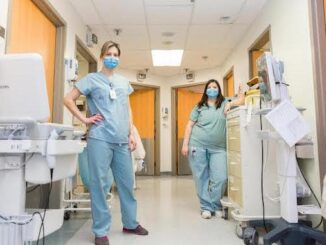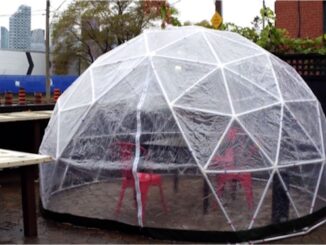By Marshal Sterio, CEO, Surgically Clean Air
One of the amazing things about humans is how adaptable we are. When we encounter an unfamiliar situation, we often make poor decisions based on a lack of information, but over time we learn more and change our behaviours based on this new knowledge. In March 2020, just about everyone was clueless about COVID-19. We knew that it was bad, but little was known about how it spread, how it would affect infected patients, and what the best ways were to mitigate its effects. For more than a year and a half, as we have all struggled through this pandemic together, we have learned a lot about how the disease works, and we have adjusted our activities accordingly. And one of the key things we have learned is that improving the quality of air in indoor spaces is the best way to keep people healthy.

If you remember the earliest days of the pandemic here in Toronto, all of us were fanatically wiping down food delivery bags because of a fear that even a microscopic speck of virus would make our entire families sick. People were stockpiling hand sanitizer like it was gold, and we were compulsively washing our hands dozens of times a day. All of that gave us a sense of control, but it ultimately turned out to be pretty unnecessary. That’s because fewer than one in 10,000 cases of COVID-19 have been traced to surface contamination.
We also learned that gatherings in outdoor spaces were not as risky as initially feared. If you remember the first large gathering in Trinity Bellwoods Park in the summer of 2020, many pundits predicted that thousands of people would get sick and die. This didn’t happen, because it turns out that being in outdoor areas reduces the concentration of the novel coronavirus to a point where super-spreader events just don’t happen.
Another major thing we learned is that just about every outbreak of COVID-19 in North America can be traced to indoor events in spaces with poor ventilation. That is an important piece of knowledge, because it allows all of us to focus prevention efforts on the most significant factor for the spread of the virus as we head into what many experts are predicting will be a fourth wave caused by the spread of the deadly delta variant in Canada. It is not unreasonable to expect new restrictions and shutdowns to be enacted, even as vaccination rates continue to climb, but this time we can do it with the gift of 18 months of evidence and empirical data that we didn’t have a year ago.
This is where improving indoor air quality can make the difference between mild inconveniences and months of devastating disruptions as schools, businesses, and offices are once again forced to retreat into the online-only realm. As it turns out, this is a fairly simple approach that has been well-understood for thousands of years: fresh air keeps people healthy during disease outbreaks. The bad news is that it’s impossible to open windows in many modern buildings, which are equipped with heating and air-conditioning systems that were never designed for a pandemic. They do a great job of controlling temperature and humidity, but they simply don’t circulate and filter enough air to maintain optimal health. That’s why the Centres for Disease Control (CDC) is recommending supplemental air filtration systems to minimize the likelihood of disease outbreaks and keep people healthy.

In fact, this has actually been the standard in many industries for many years. Just about every hospital, medical office, and dental office uses additional air filtration because of the increased risk of disease in those locations. Many athletic facilities also rely on supplemental air systems for similar reasons. But thanks to the coronavirus pandemic, this needs to be a universal approach in just about every indoor location where people congregate, from offices to restaurants to malls.
The good news is that it is fairly easy to install these systems and have them up and running in a matter of days. That’s because they don’t need to be hardwired into existing ventilation systems, and they usually don’t need any special infrastructure, such as heavy-duty power supplies.
There is no single magic bullet that is going to make the coronavirus go away. Even with the number of vaccines that are currently being deployed, most medical experts expect this disease to be around for many years, or even decades, to come. At the same time, we all need to get back to our normal lives, or as close as we can get to what life was like before any of us had ever heard of COVID-19. By improving indoor air quality, businesses in just about every industry can give themselves a fighting chance to remain open while keeping their guests and customers safe.
Marshal Sterio is the CEO of Surgically Clean Air Inc., a Toronto-based manufacturer of portable systems that purify air by supplementing existing HVAC systems. The company’s products are market leaders in dental practices, currently protect over 50,000 dental professionals, and are used by Fortune 500 companies, Major League Baseball clubs, the NBA, the NHL and thousands of other organizations.




